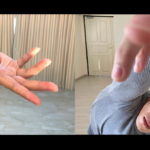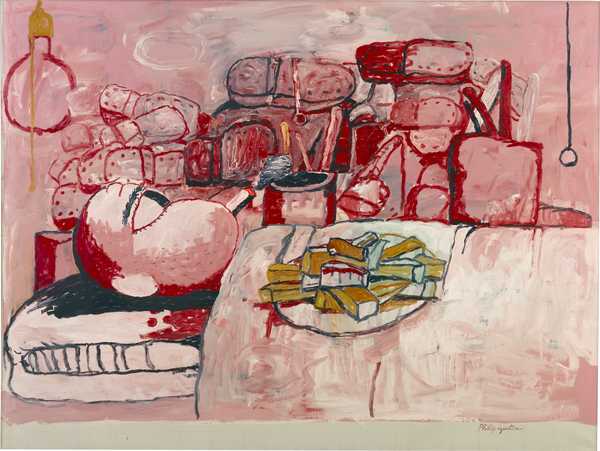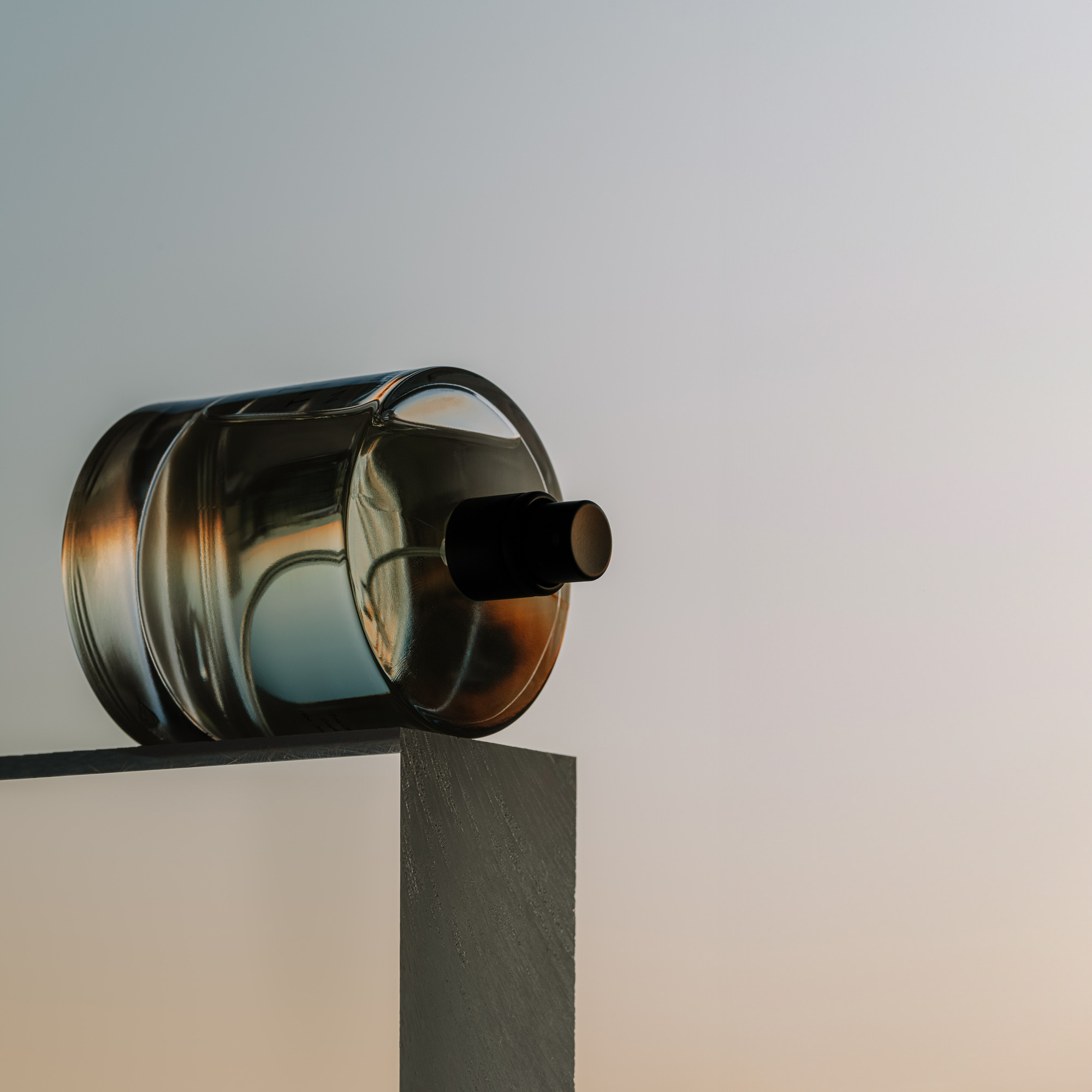Wild Money
2017 - Painting (Painting)
235 x 130 cm
Laura Gannon
The impressionistic surface of Wild Money (2017) recalls the 1950s paintings of Philip Guston. Its creases recall human skin, while the filigree pattern of red skeins implies what lies beneath. The body is fully implicated in this work. The ink is applied to both sides of the linen and suggests an inner and outer dimension. The titles of Gannon’s work frequently reference books: in this case Wild Money by Luna Jaffe, a visual artist and psychotherapist. It is a book aimed at artists about feelings for money and the artist’s relationship to money. In Wild Money, Gannon speaks both to the materiality of the densely woven fabric and the spaces that are opened up through the cuts.
Laura Gannon works across a range of media: painting, drawing, sculpture and video. With a background in film, she has often installed her video work using dividing elements, screens or benches, to create selective viewing experiences for her audience. The artist has recently developed a series of paintings using metallic ink on unstretched linen. At the end of the painting process, the artist cuts into the linen. While cutting gestures inevitably make reference to the work of Lucio Fontana, Gannon’s interests are different. Fontana was interested in breaking the picture plane, the cuts in his work created dark mysterious slits. Gannon, by contrast, seeks to admit light and thus incorporating the wall into the work itself. Her work has a strong relation to the body, whether through the gesture of cutting or its impression of capillaries. Gannon’s practice can be understood as the meeting point of the performative and the sculptural.
Colors:
Related works sharing similar palette

© » ARTFORUM
Title, Theme Announced for Sixth Aichi Triennale – Artforum Read Next: ART BASEL REVEALS EXHIBITOR LIST FOR 2024 SWISS FAIR Subscribe Search Icon Search Icon Search for: Search Icon Search for: Follow Us facebook twitter instagram youtube Alerts & Newsletters Email address to subscribe to newsletter...

© » KADIST
Gan Chin Lee
In Studies of Chinese New Villages II Gan Chin Lee’s realism appears in the format of a fieldwork notebook; capturing present-day surroundings while unpacking their historical memory...

© » KADIST
Power Forward Wednesday, January 24, 2018 Bar 6pm, Program 7pm Ezekiel Kweku & Ameer Lo ggins in conversation, moderated by Sarah Hotchkiss Editors Astria Suparak & Brett Kashmere in person To celebrate the launch of Sports , the newest issue of artist-run publication INCITE: Journal of Experimental Media , KADIST hosts an evening of athletics, politics, art, and dialogue...

© » KADIST
Allora & Calzadilla
This installation combines the display of real objects with the deceptively painterly amalgamation of their content as the subject of a photograph...

© » KADIST
Andrea Bowers
2010The small drawings that comprise Study from May Day March, Los Angeles 2010 (Immigration Reform Now) and We Are Immigrants Not Terrorists are based on photographs taken at a political rally in downtown Los Angeles in which thousands of individuals demonstrated for immigrants’ rights...

© » KADIST
Michelle Handelman
2009In Dorian, a cinematic perfume, video is used as a community gatherer, a tool to speak about particular subcultures, in this case the trans-gender drag queen New York community, past and present...

© » KADIST
Milena Bonilla
2009Milena Bonilla’s discursive practice explores connections among economics, territory, and politics through everyday interventions...

© » SLASH PARIS
Guy Leclercq — Épures et couleurs — Dutko / Quai Voltaire Gallery — Exhibition — Slash Paris Login Newsletter Twitter Facebook Guy Leclercq — Épures et couleurs — Dutko / Quai Voltaire Gallery — Exhibition — Slash Paris English Français Home Events Artists Venues Magazine Videos Back Guy Leclercq — Épures et couleurs Exhibition Painting View of the artist’s studio Guy Leclercq Épures et couleurs Ends in 27 days: December 7, 2023 → January 13, 2024 Dutko Gallery is pleased to present from December 7th until January 13th a selection of the most recent works by Belgian artist Guy Leclercq...

© » ARTS EQUATOR
Purⓔ《纯ⓔ》: How do we talk about Art Form X? | ArtsEquator Thinking and Talking about Arts and Culture in Southeast Asia ArtsEquator Viewpoints Courtesy of M1 CONTACT July 13, 2020 By Jocelyn Chng (1,800 words, 4-minute read) When I accepted the opportunity to write this piece on Purⓔ 《 纯 ⓔ》 , I did it feeling a bit like a shipwreck survivor re-approaching water for the first time...

© » KADIST
Pablo Rasgado
2011Pablo Rasgado’s paintings and installations serve as a visual record of contemporary urban human behavior...

© » KADIST
Bruce Conner
1995Bruce Conner is best known for his experimental films, but throughout his career he also worked with pen, ink, and paper to create drawings ranging from psychedelic patterns to repetitious inkblot compositions...

© » KADIST
Marcelo Cidade
2010Adição por subtração 4 (Addition by Subtraction, 2010) is an intervention into the white cube with both beautiful and intimidating results...

© » LENS CULTURE
49/23 — Considering Technology, AI and Photography - Photographs by Gregory Eddi Jones | Interview by Liz Sales | LensCulture Feature 49/23 — Considering Technology, AI and Photography In his new thought-provoking series “49/23,” Gregory Eddi Jones considers the implications of rapidly advancing technology by intertwining vintage photography and AI-generated images...

© » SLASH PARIS
Guy Leclercq — Épures et couleurs — Galerie Dutko / Quai Voltaire — Exposition — Slash Paris Connexion Newsletter Twitter Facebook Guy Leclercq — Épures et couleurs — Galerie Dutko / Quai Voltaire — Exposition — Slash Paris Français English Accueil Événements Artistes Lieux Magazine Vidéos Retour Guy Leclercq — Épures et couleurs Exposition Peinture L’atelier de l’artiste Guy Leclercq Épures et couleurs Encore 27 jours : 7 décembre 2023 → 13 janvier 2024 La Galerie Dutko présente du 7 décembre 2023 au 13 janvier 2024 les œuvres récentes de l’artiste belge Guy Leclercq...






